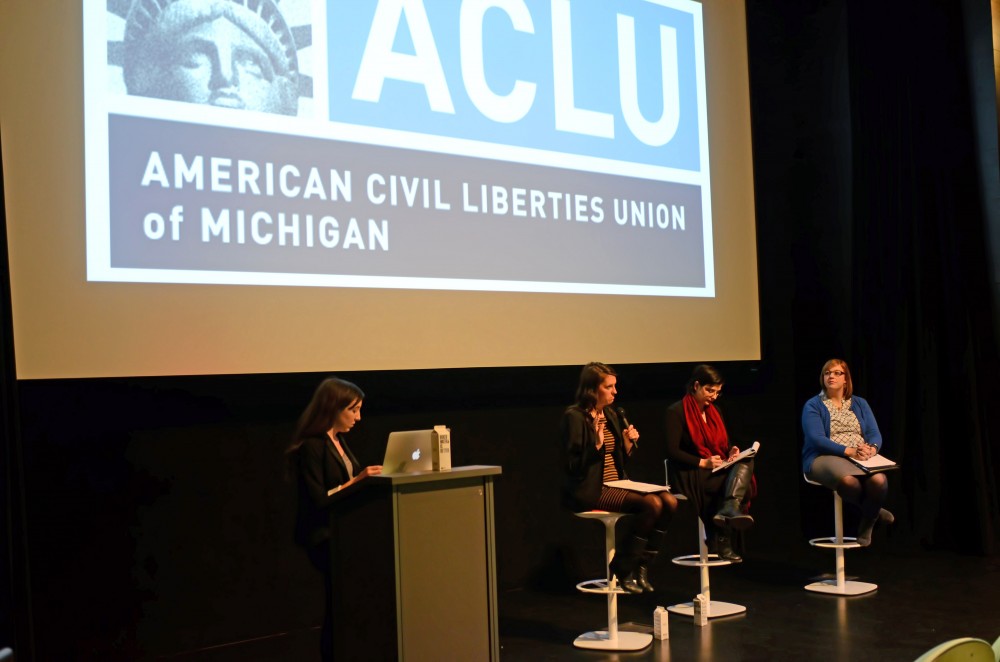Pro-choice supporters share thoughts on abortion legislation

GVL/Kevin Sielaff Presentors Jessica Jennrich of the Grand Valley State University Women’s Center, Dani Vilella of Planned Parenthood, and Merissa Kovach of the ACLU (American Civil Liberties Union) tackle the issue of gender equality at the Urban Institute in Grand Rapids.
Mar 12, 2014
Abortion is a word attached to a stigma. In a panel discussion on March 10, abortion rights supporters shared their thoughts about what has become know as the “war on women.”
“The war on women describes a series of legislative and rhetorical attacks on women and women’s health taking place across the country,” said Amanda Grigg, moderator of the event.
The presentation, “Hands Off! Ending the War on Women,” took place in downtown Grand Rapids at the Urban Institute for Contemporary Arts. It was cosponsored by Grand Valley State University’s Women’s Center and the American Civil Liberties Union (ACLU) of West Michigan.
The discussion was focused on women’s access to reproductive health services. In one of her opening remarks, Merissa Kovach, a field organizer for the ACLU, dubbed Michigan the “ground zero” for the so-called war.
“We are seeing a lot of things get tested on Michigan before they go throughout the whole country. The ACLU has been really battling these anti-choice policies,” Kovach said.
The women continued to discuss legislation that is being brought forth by leaders in government and its ultimate goal to make certain women’s health care services a done deal.
“There is a religious refusal bill that would allow health care professionals to refuse to give services based on moral or religious beliefs,” Kovach said. “It is promoted as a means of protecting consciences of health care workers who have religious and moral objections to providing certain health care services.”
While Kovach said this may have negative repercussions for women, members of GVSU’s Students for Life group argued that abortion is the killing of a human being and the refusal is justified.
“Health care providers should never have to perform an abortion if it goes against their religious beliefs,” said Shannon Scott, president of Students for Life. “Even if the health care provider is not religious but believes that abortion is wrong, they should never be forced to perform an abortion.”
Jessica Jennrich, director of GVSU’s Women’s Center, said that while it may seem like a black and white issue, there are other unintended consequences that fall on the backs of the underprivileged.
“My work is in trying to expand the understanding on how it became a war on women when we are talking about reproductive justice, which clearly requires some inclusion of men at some point,” Jennrich said.
Though the two groups do not have much to agree on, Dani Vilella, a field worker for Planned Parenthood Advocates of Michigan, made a deeper point.
“There are a lot of ways that we can get to common ground and deeper conversations about abortion,” Vilella said. “The first point is to start talking about abortion openly. We can’t have an honest conversation about choice until we can have any conversation about choice in this country.”






















